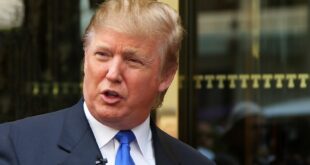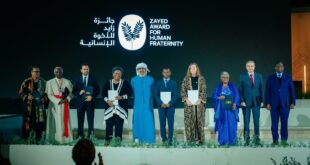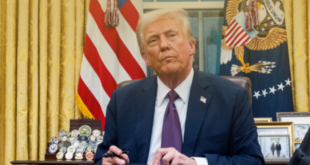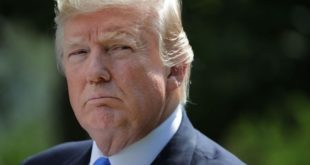Beijing asserts sovereignty over Taiwan, a self-governing democracy of over 23 million people and has sought to exclude the island from global affairs by picking off its diplomatic partners and reacting furiously to exchanges between Taipei and foreign officials.
China “may try to keep Taiwan from visiting or participating in other places, but they will not isolate Taiwan,” Pelosi said in Tokyo, adding that Beijing could not dictate who could visit the island. “They are not doing our traveling schedule, the Chinese government is not doing that,” she said.
The Chinese Communist Party (CCP) says Taiwan issues are China’s internal affairs, but Pelosi’s visit underscored broad concern among the United States’ Asian allies about conflict in the Taiwan Strait because of their proximity and the passageway’s vital role in trade. Japan’s concerns with potential Chinese military action against Taiwan — which is less than 100 miles from Japan’s westernmost point — have shaped Tokyo’s defense spending and diplomatic calculations.
On Thursday, as a part of the military exercises Beijing announced in response to Pelosi’s visit to Taipei, five of China’s ballistic missiles landed in Japan’s exclusive economic zone (EEZ) for the first time, with one falling as close as 50 miles from Yonaguni, Japan’s westernmost inhabited island. On Friday, Japanese Prime Minister Fumio Kishida condemned those actions and called for China to halt the exercises.
“I have informed Speaker Pelosi that the fact China’s ballistic missiles had landed near Japanese waters, including the EEZ, threatens our national safety and security,” Kishida said. “We also confirmed continued close cooperation to maintain peace and stability in the Taiwan Strait.”
In Taipei, the Defense Ministry said Chinese warships and military jets had crossed the median line on Friday, marking the third time this week that Beijing ignored the unofficial maritime border between Taiwan and China. The ministry said it had deployed aircraft, ships and its land-based missile system to monitor the situation.
“Whether it is launching ballistic missiles or deliberately crossing the middle line of the strait, the CCP’s military exercises are highly provocative,” the ministry said in a statement. “[We] will follow the principle of preparing for war rather than seeking war. The military and civilians will work together to defend our sovereignty and national security.”
Taiwanese Premier Su Tseng-chang labeled China an “evil neighbor flexing its muscles on our doorstep” with actions that “arbitrarily sabotage” one of the world’s busiest waterways, according to a statement from Taiwan’s Executive Yuan, the executive branch of its government.
In a speech Thursday, President Tsai Ing-wen said Taiwan would remain responsible, rational and calm in the face of the “unprecedented threat.”
“I want to ask my fellow citizens to rest assured that our government is responding with a steady hand,” Tsai said, adding that airports and seaports continue to function normally and the economy remains stable. Some international flights were canceled, however.
China’s military maneuvers are expected to continue through the weekend. Taiwan has said the exercises, which affect six areas on all sides of Taiwan and come closer to the island than in previous cross-strait crises, are tantamount to a sea and air blockade.

Separately, China’s Foreign Ministry said Friday that Vice Foreign Minister Deng Li summoned Japan’s ambassador, along with European envoys from the Group of Seven countries, to complain about an “erroneous” statement from the G-7 and the European Union foreign minister criticizing China’s live-fire exercises and economic coercion against Taiwan as risking “unnecessary escalation.”
“What is evil? What is shameless? If there are still people in the world who don’t understand, please take a look at the statements of the G-7 and E.U. foreign minister,” China’s mission to the E.U. said in a statement Thursday.
China has also imposed economic pressure on Taiwan in retaliation for its hosting of Pelosi. Beijing banned imports this week from more than 100 Taiwanese fruit and seafood exporters, covering an export value of about $20 million to $26 million, according to Taiwan’s Council of Agriculture. Beijing also halted exports of natural sand to Taiwan.
Su, the premier, promised assistance for Taiwanese businesses hit by the trade sanctions but downplayed the disruption to Taiwan’s economy, saying that many local companies had already soured on the market after realizing how often “politics disrupts economic activity” in China.
As Pelosi was touring Taiwan on Wednesday, authorities in China’s Zhejiang province said they had detained a Taiwanese national, Yang Chi-yuan, on charges of endangering national security.
 Home Of Ghana News Ghana News, Entertainment And More
Home Of Ghana News Ghana News, Entertainment And More






